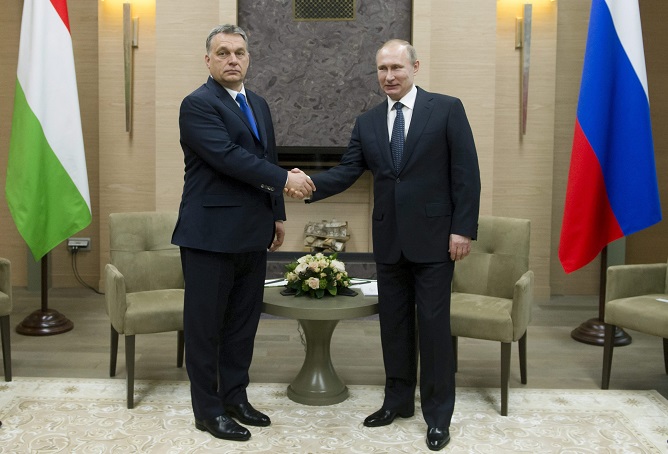
A liberal and a conservative weekly disagree on the chances of a serious military conflict between Russia and Ukraine – and by implication, on the message the Hungarian Prime Minister is sending by visiting Moscow on Tuesday.
Hungarian press roundup by budapost.eu
Background information: the Prime Minister told a press conference on Thursday that Hungary wants good relations both with Moscow and Kyiv. In his customary bi-weekly radio interview on Friday, he added that he was consulting allies within the European Union and NATO, as he usually does each year before meeting President Putin.

Magyar Narancs squarely condemns the Prime Minister for paying a visit to Moscow at a moment when, as the liberal weekly sees it, Russia is amassing huge military forces in order to invade an independent, sovereign, and democratic country. In case such a war breaks out, the editors write in their first page editorial, prolonged fighting is probable with hundreds of thousands of victims. They condemn the Prime Minister for preparing to shake hands with ‘a dictator who represents a threat to world peace’ and for bringing shame on Hungary by doing so. In addition, Magyar Narancs reads Russia’s famous December note as meaning that Hungary, along with the rest of the countries which have joined NATO since 1999, should leave the Atlantic alliance. The editors ask why Orbán, who is so adamant in defending Hungary’s sovereignty against Brussels, is not concerned about what they consider a brutal attack on Hungarian sovereignty.

In Mandiner, by contrast, Attila Demkó deems a war in Ukraine highly unlikely. He points to three possible targets the Russians may be interested in, but considers them difficult to achieve without heavy losses, and believes that it would be hard to defend them in the long run. The conservative analyst finds it much more plausible that the diplomatic offensive launched by Russia aims at a new compromise with the United States. He believes President Biden to be a realist who is ready to oppose the beliefs, interests and lobbies that tend to dominate US foreign policy. This would allow him, Demkó continues, to ‘withdraw’ from Ukraine, although in a less spectacular way than he did from Afghanistan. America’s core interests are threatened by China, not Russia, Demkó suggests. If Washington wants to focus on Peking, then Ukraine is a useless front to fight along, he argues.
Featured photo illustration by Szilárd Koszticsák/MTI